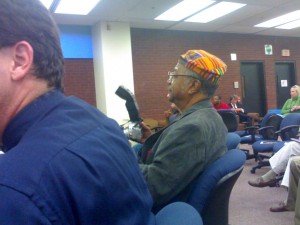 I stumbled onto a photo exhibition on campus on Wednesday, after a very stressful day of two classes. If not for a chance meeting with retired Professor Eugene B. Redmond as I headed home from Pizza hut, I definitely would have missed out. I had first met EBR last in Ibadan in 2003 or so when he visited the University campus there on an exchange programme, and to present new editions of DrumVoices Revue – a quarterly publication of poems from all over the world. I was with him and another professor from Ibadan when he visited the palace of the Ooni in Ife – which was the first time for me at the time. I have not been successful in getting him to grant me access to my digital copies of those photographs. Maybe they will end up in an exhibition someday. It will definitely be a pleasure to see them for the first time in over five years.
I stumbled onto a photo exhibition on campus on Wednesday, after a very stressful day of two classes. If not for a chance meeting with retired Professor Eugene B. Redmond as I headed home from Pizza hut, I definitely would have missed out. I had first met EBR last in Ibadan in 2003 or so when he visited the University campus there on an exchange programme, and to present new editions of DrumVoices Revue – a quarterly publication of poems from all over the world. I was with him and another professor from Ibadan when he visited the palace of the Ooni in Ife – which was the first time for me at the time. I have not been successful in getting him to grant me access to my digital copies of those photographs. Maybe they will end up in an exhibition someday. It will definitely be a pleasure to see them for the first time in over five years.
Eugene Redmond’s reputation doesn’t always reflect on his regularly meek appearance, but he has travelled far, met notable people, and contributed so much to the development of the arts and the African-American culture. On Wednesday, he was in a kente jacket and a matching cap, covered with an dark coat. He is most likely to be seen with at least two cameras on him at all times. Till date, he is reputed to have taken at least 150,000 photographs of people from all over the world. He was named the Poet Laureate of East St. Louis in 1976, and he boasts of a long time of frienship with very many leaders of the Black Movement, past and present, in literature, music and the arts, from Henry Dumas to Toni Morrison, Wole Soyinka, Katherine Dunham, Oprah Winfrey, Amiri Baraka and Maya Angelou, all of whom he has captured with his camera lens at one time or the other.
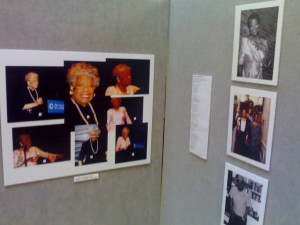 The exhibition was titled “Eighty Moods of Maya”, and it features eighty of the pictures taken of the poet and novelist Maya Angelou over several decades, and in many moods, some serious, some trivial, some private and relaxed, and some public and tense. Eugene Redmond has worked as a poet, journalist and photographer as well as a critic, academic and publisher. He first attended SIUE as a student. He was a student journalist with a camera at the 1963 March on Washington as an editor of The Alestle, a student publication here on campus. He has also taught many times at SIUE before he retired a few years ago. On retirement, he donated a collection of his photographs to the SIUE Library, and thus became a patron of the institution.
The exhibition was titled “Eighty Moods of Maya”, and it features eighty of the pictures taken of the poet and novelist Maya Angelou over several decades, and in many moods, some serious, some trivial, some private and relaxed, and some public and tense. Eugene Redmond has worked as a poet, journalist and photographer as well as a critic, academic and publisher. He first attended SIUE as a student. He was a student journalist with a camera at the 1963 March on Washington as an editor of The Alestle, a student publication here on campus. He has also taught many times at SIUE before he retired a few years ago. On retirement, he donated a collection of his photographs to the SIUE Library, and thus became a patron of the institution.
The exhibition which took place in the library also featured little speeches, food, and conversations among all present. We all knew we were waiting for Maya Angelou who is coming to campus later this week. The exhibition was just a teaser. There will be a long crowd on campus on October 4th to listen to the 81 year old poet and novelist who made history when she read “On The Pulse of A Morning” during President Bill Clinton’s Inauguration in 1993. In my case, I look forward to presenting to her something (I won’t tell you what) that I brought from Nigeria, getting a book signed, and getting a nice picture in my camera. Wish me luck.
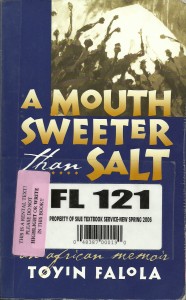 Toyin Falola which is our second class text. In many ways, the book is much like Wole Soyinka’s “Ake”, in style, content, and value, especially in the clever turns of phrase, eloquence, and reference to recognizable landmarks in the history of South-Western Nigeria before independence. The chapter is set when the author was nine years old, and the whole work is written in a way that makes it seem that we are listening to a child talk, even though we know that it is an adult relaying his many interesting experiences from childhood.
Toyin Falola which is our second class text. In many ways, the book is much like Wole Soyinka’s “Ake”, in style, content, and value, especially in the clever turns of phrase, eloquence, and reference to recognizable landmarks in the history of South-Western Nigeria before independence. The chapter is set when the author was nine years old, and the whole work is written in a way that makes it seem that we are listening to a child talk, even though we know that it is an adult relaying his many interesting experiences from childhood.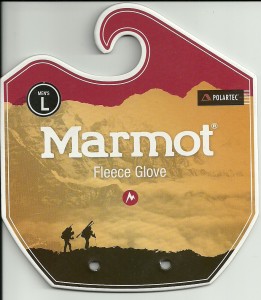 “I wanna live. I don’t wanna die. That’s the whole meaning of life: Not dying! I figured that sh*t out by myself in the third grade.”
“I wanna live. I don’t wanna die. That’s the whole meaning of life: Not dying! I figured that sh*t out by myself in the third grade.”
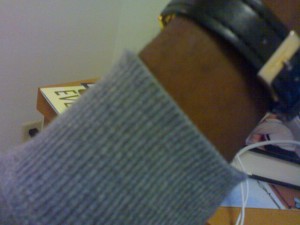 10. It lasts for too long. I’ve been here since August, and from what I hear, it will get colder and colder until March.
10. It lasts for too long. I’ve been here since August, and from what I hear, it will get colder and colder until March.